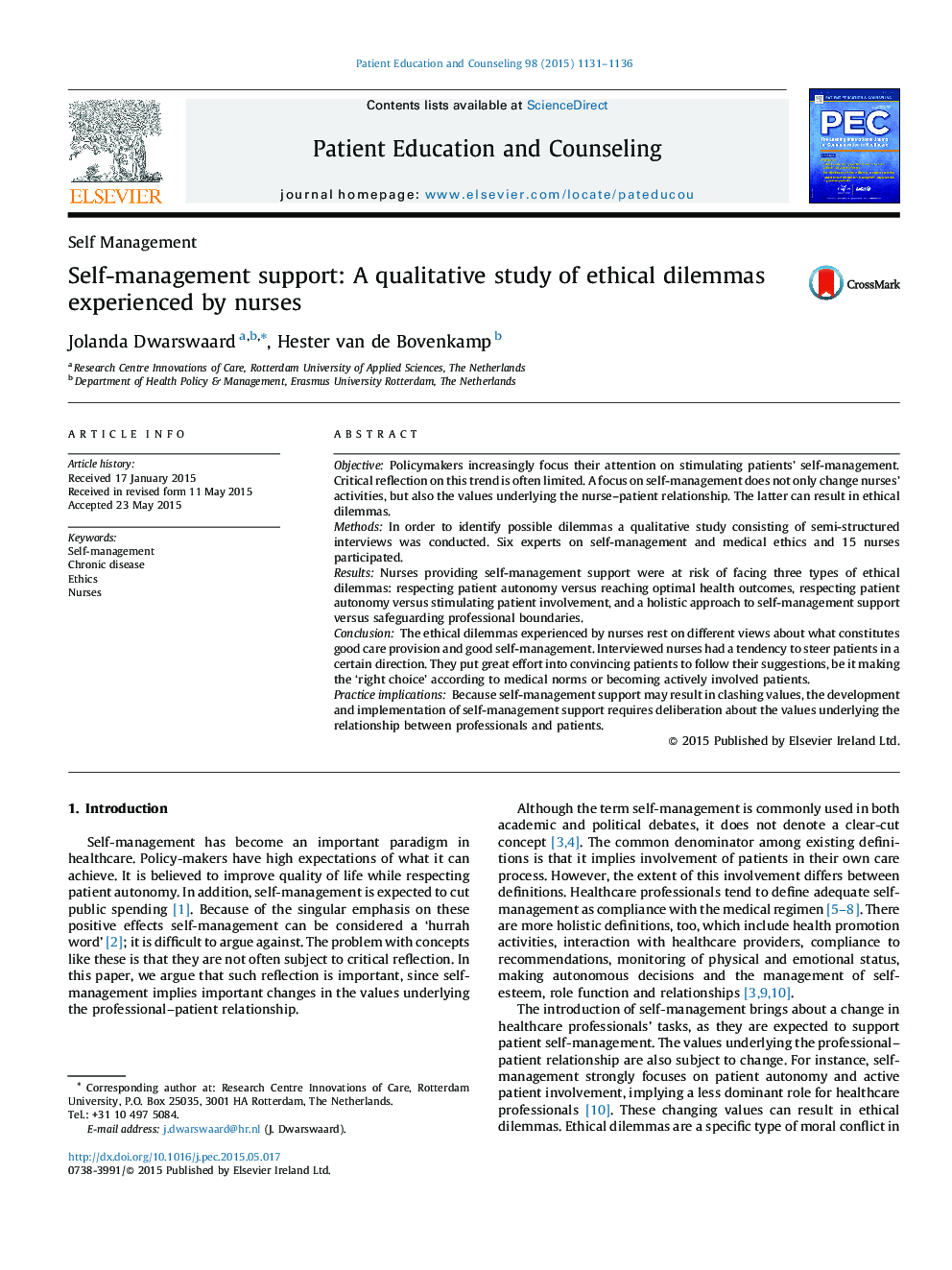| Article ID | Journal | Published Year | Pages | File Type |
|---|---|---|---|---|
| 3813194 | Patient Education and Counseling | 2015 | 6 Pages |
•Nurses providing self-management support can experience ethical dilemmas.•Interviewed nurses often focus on optimal medical outcomes at the expense of patient autonomy.•Implementation of self-management support requires ethical deliberation.•Patients should be part of that ethical deliberation.
ObjectivePolicymakers increasingly focus their attention on stimulating patients’ self-management. Critical reflection on this trend is often limited. A focus on self-management does not only change nurses’ activities, but also the values underlying the nurse–patient relationship. The latter can result in ethical dilemmas.MethodsIn order to identify possible dilemmas a qualitative study consisting of semi-structured interviews was conducted. Six experts on self-management and medical ethics and 15 nurses participated.ResultsNurses providing self-management support were at risk of facing three types of ethical dilemmas: respecting patient autonomy versus reaching optimal health outcomes, respecting patient autonomy versus stimulating patient involvement, and a holistic approach to self-management support versus safeguarding professional boundaries.ConclusionThe ethical dilemmas experienced by nurses rest on different views about what constitutes good care provision and good self-management. Interviewed nurses had a tendency to steer patients in a certain direction. They put great effort into convincing patients to follow their suggestions, be it making the ‘right choice’ according to medical norms or becoming actively involved patients.Practice implicationsBecause self-management support may result in clashing values, the development and implementation of self-management support requires deliberation about the values underlying the relationship between professionals and patients.
